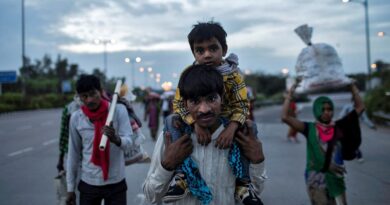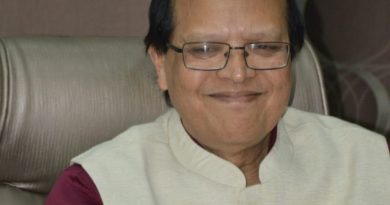SEVERAL Programs Announced for Observing Ishwar Chandra Vidyasagar’’s 200th Birth Anniversary
A year-long program has kicked off for observance of 200th birth anniversary of Ishwar Chandra Vidyasagar, a polymath and key figure of Bengal renaissance, through various activities at Silchar in Assam’s Barak Valley. The Vidyasagar centenary celebration committee brought out a rally from Khudiram Bose point in which students, youngsters and leading citizens of the city walked to spread the messages of the great reformer. Academician and secretary of the celebration committee Ahoy Roy informed that the panel shall conduct various events throughout the year across Cachar district in order to disseminate the ideologies of Vidyasagar, who is credited for the reconstruction of Bengali alphabets and simplification of Bengali typography into 12 vowels and 40 consonants. Students and faculty members from the Department of Bengali at Women’s College Silchar unveiled their wall magazine ‘Kshonika’ as a part of paying tributes to Vidyasagar.
Born Ishwar Chandra Bandopadhyay, on 26 September 1820, at Birsingha Village in West Bengal’s Ghatal Sub-Division was a many faceted personality. He was dedicated to woman’s emancipation and supported the movement launched by Raj Ram Mohan Roy for widow marriage and abolition of Sati system. He passed way in Kolkata on 29 July 1891.He was a philosopher, educator, writer, translator, printer, publisher, entrepreneur, reformer and philanthropist. He had received the honorific name Vidyasagar from Sanskrit College for his proficiency in the language and philosophy. Among his other notable contribution is reconstruction of the Bengali alphabet and simplification of the Bengali typography into 12 vowels and 40 consonants. The Bengali alphabet had remained unchanged since Charles Wilkins and Panchanan Karmakar had cut the first Bengali type in 1780. He made significant contributions to Bengali and Sanskrit literature with works like Borno Porichoy considered a classic. He had fought against polygamy in the Hindu society, particularly among the Kulin Brahmins. Meanwhile in Kolkata, West Bengal government has announced setting up a museum at the north Kolkata house of the illustrious social reformer where he had spent the last few years of his life, State minister Partha Chatterjee said.The museum will come up at Vidyasagar’’s residence at Badur Bagan area where pictures and models, chronicling his life from his birth place at Birsinghapur village in Paschim Medinipur district to the house in north Kolkata, will be put on display, he said on Thursday. Chatterjee, who is the education minister, made the announcement at a function after inaugurating ”Vidyasagar Academy” at the Badur Bagan residence on the 199th birth anniversary celebrations of the educational and social reformer. The minister also released two books, ”Amader Vidyasagar” and ”Chotoder Vidyasagar” at the programme. Some items used by Vidyasagar, gathering dust in the storeroom of the house, will be brought out for public viewing at the museum. This will help the present generation know about the man, who had waged a war against women oppression and propagated widow remarriage.The School Education and Higher Education department will organise seminars highlighting Vidyasagar’’s life and work in schools and colleges during a year-long programme, Chatterjee said.




